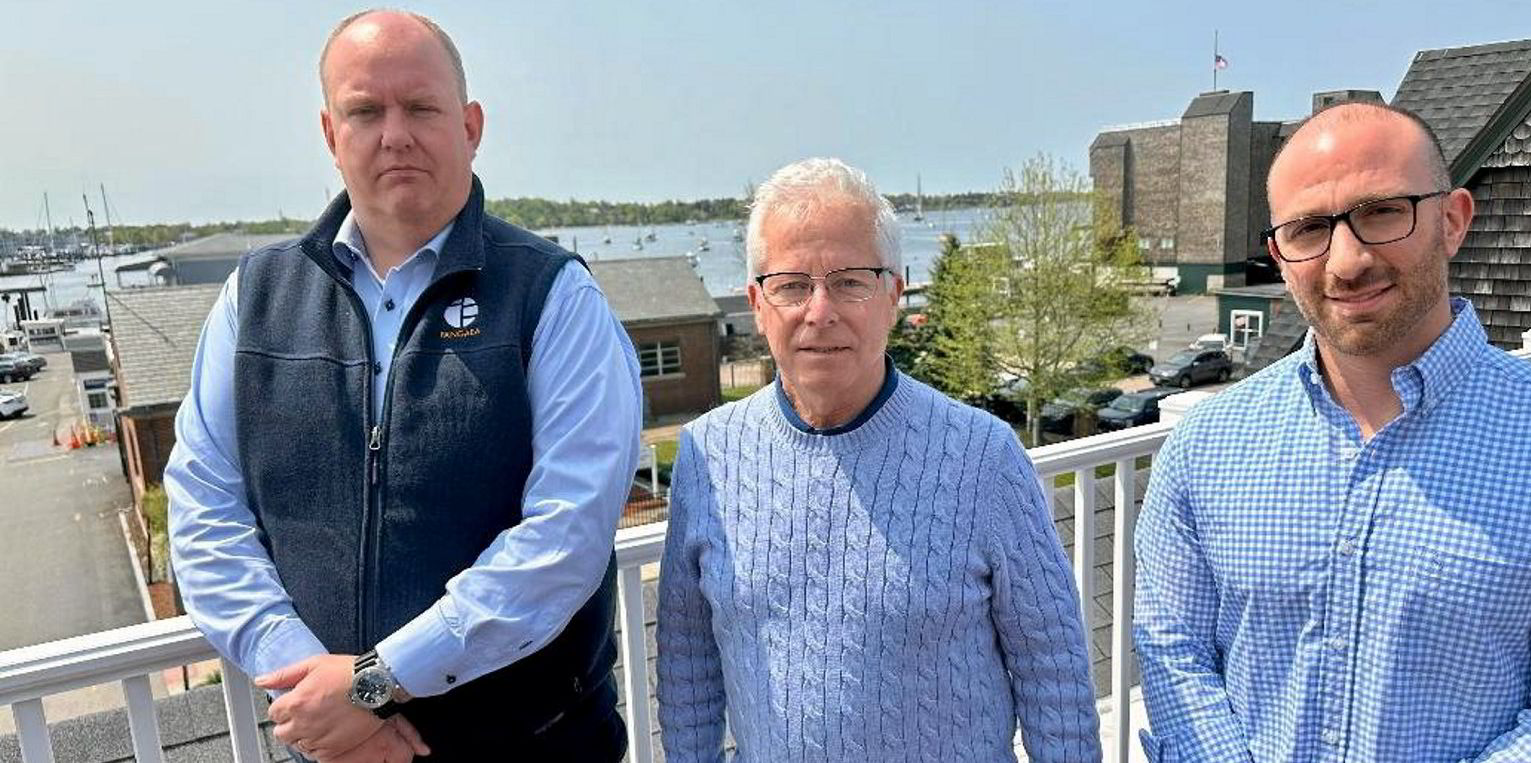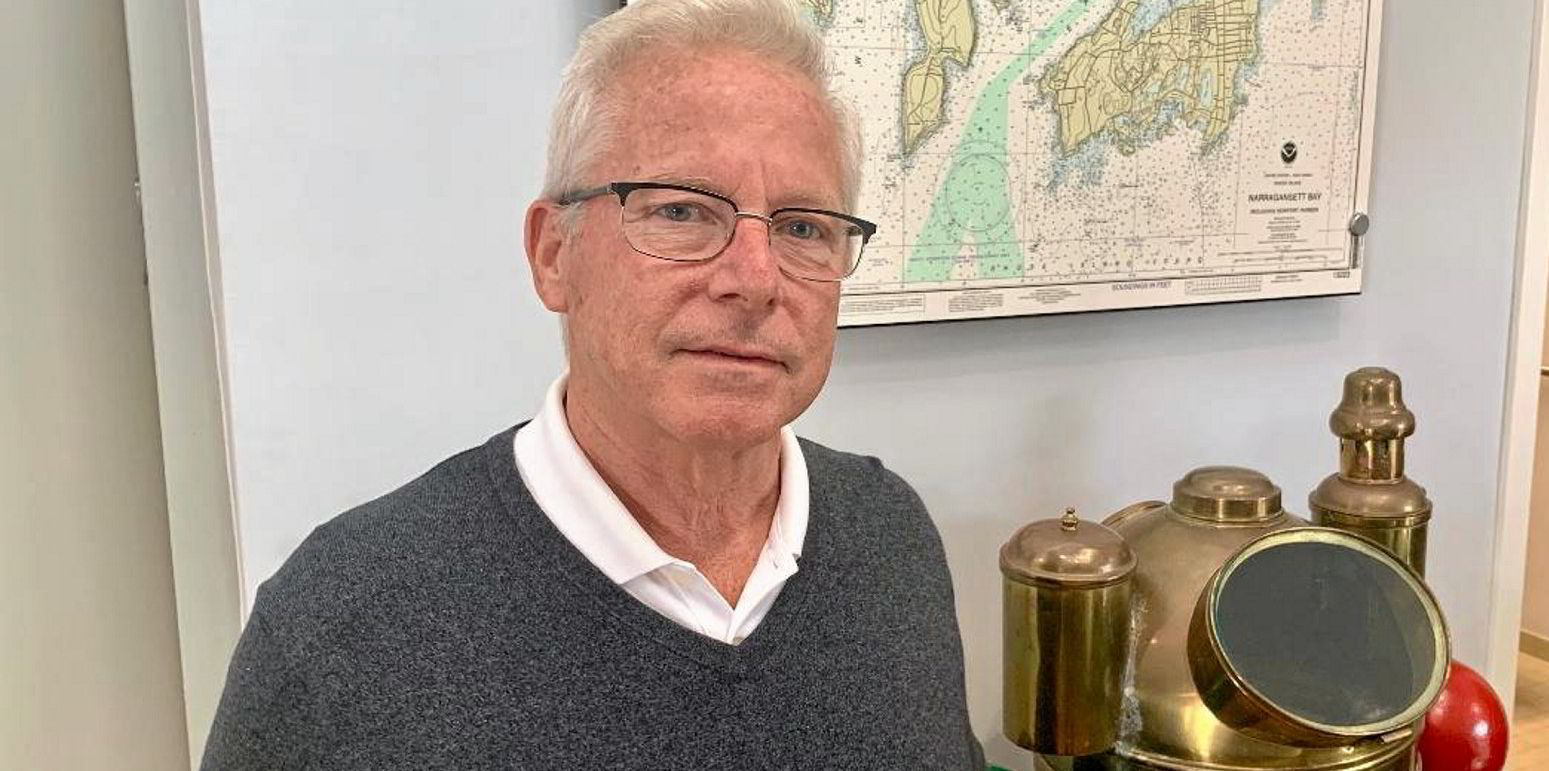The European Union Emissions Trading System has moved to the forefront of considerations by management at New York-listed Pangaea Logistics Solutions in discussions with cargo interests and decisions on further fleet renewal.
That was the word from senior executives on Thursday as TradeWinds visited Pangaea headquarters in Newport, Rhode Island, during a day featuring belated memorial services for company founder Ed Coll and a celebration of the outfit’s 25th anniversary.
While chief executive Mark Filanowski said the International Maritime Organization’s Carbon Intensity Indicator (CII) regime also is firmly on the radar, EU emissions trading has moved into pole position as regards imminent decision-making.
“The CII regulations are still in flux, but what’s coming up faster are the EU carbon credits,” Filanowski said.
“There’s a lot of talk around changes in trade lanes and how to arrange voyages for some of our businesses that bring cargoes in and out of Europe. I’m not sure that we’re the ones who ultimately are going to be making those decisions. It might be the cargo owners. But this is going to impact the cost of delivered material into Europe.”
Filanowski’s thoughts were echoed by chief operating officer Mads Boye Petersen.
“As with a lot of regulation, the question is, ‘Is this an opportunity or a threat?’” Petersen said. “It’s probably a bit of both. One good thing is that we use our own ships for these movements and we don’t have a lot of intermediaries, a lot of random tonnage providers.”
Petersen noted that the EU has taken strong steps to police those who seek an end-run around the protocols.
“The way to handle this is to run your ships efficiently, at the right speeds and with the right maintenance programme. Everyone is getting behind these regulations, and ultimately it’s the polluter who pays,” he said.
Pangaea took a step towards reducing the age of its fleet last month, when it paid $26.6m for a 61,000-dwt, 2014-built ship that has been identified as the Japanese-constructed CL Ebisu, formerly owned by Belgian shipowner Conti-Lines.
The ship, which will be renamed Bulk Prudence, is expected to be delivered to Pangaea in June and will lift its owned fleet to 25 vessels. Pangaea as of recent also has a chartered-in complement of around 20.
Its years under the belt matter
In January 2023, the company agreed to sell its oldest vessel — the 52,600-dwt supramax Bulk Newport (built 2003) — for $9.2m to an unidentified buyer.
The sale was in keeping with Pangaea’s aim to keep the average fleet age below 10 years.
Filanowski made clear that Pangaea is on the lookout for similar buys. The problem is, so are many other owners who find themselves coping with the carbon regimes.

“We’re looking at three ships right now,” he said. “It fits our ideas about where we want to take the fleet, toward a better performance emissions-wise. But there’s a scramble for good ships out there.”
Petersen added that there are not a lot of ships available on the market.
“People don’t know, if they do sell a ship, how they’re going to replace it. We have similar ships in our fleet and we’re very glad we got this one. In the past, this might have been a 58,000-dwt or 59,000-dwt vessel, but we see how CII is favouring larger bulkers.
“But this means heavy competition for those early-stage eco vessels built in 2014 and 2015. Everyone’s looking for that and there’s not a lot for sale.”




